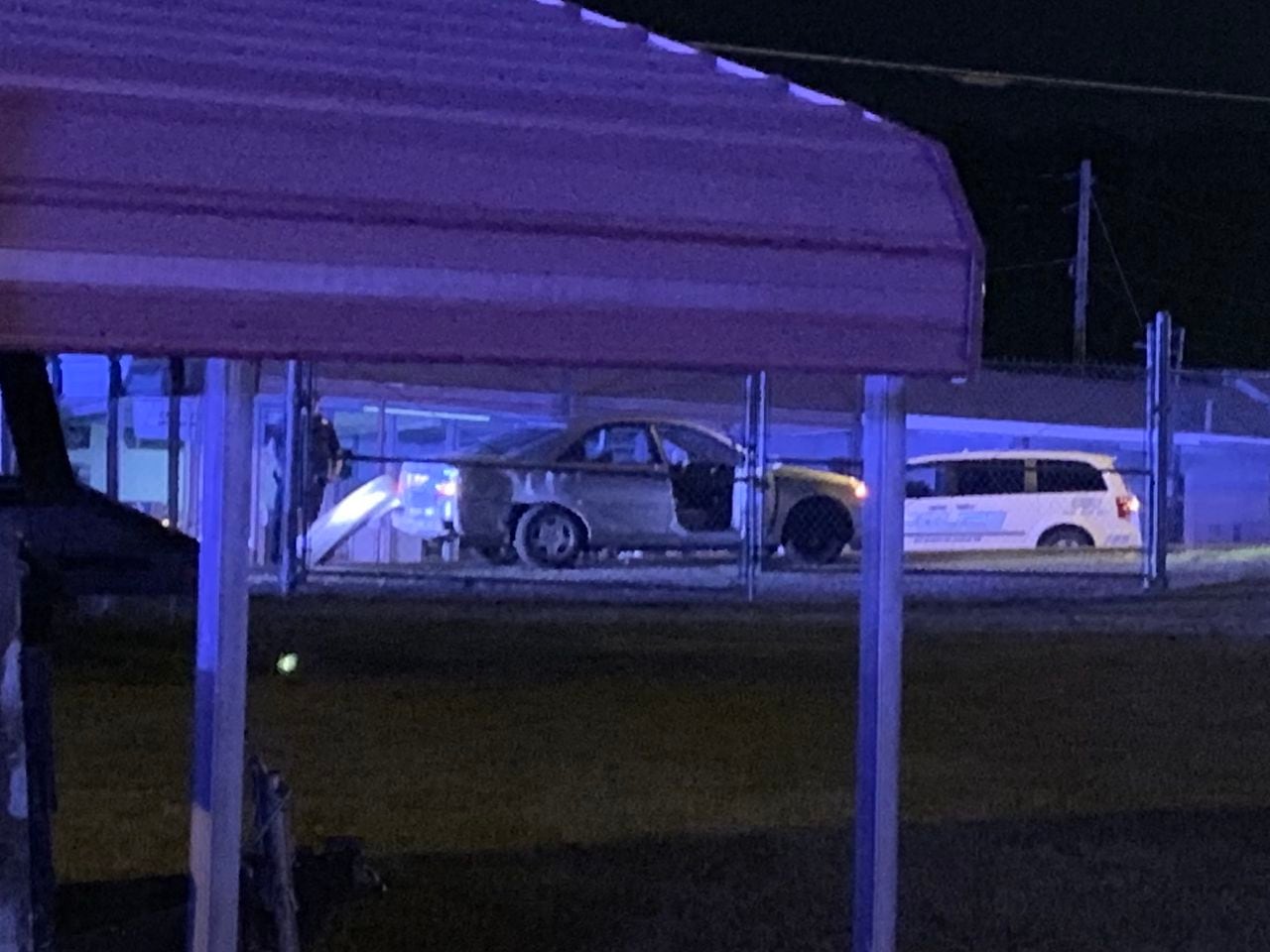Birmingham asks federal judge to throw out $4.5 million verdict in deadly police shooting
Birmingham is asking a federal judge to throw out a jury’s $4.5 million verdict in a 2019 police shooting that killed a man and broke a woman’s leg, a shooting captured on bodycam video.
In a court filing late Thursday evening – the final day that attorneys could file – attorneys for the city and Officer Aric Mitchell asked U.S. District Judge Anna M. Manasco to reverse the jury’s decision and rule in their favor, instead.
The attorneys argued there was not enough evidence to support the jury’s finding that Mitchell used excessive force in fatally shooting Jamarcus Moore and injuring Samantha Hardin on June 15, 2019.
“Mitchell acted within the scope of his discretionary authority by shooting Moore to stop him from inflicting serious injury or death upon the public at large,” the filing reads. “Any reasonable person would consider the more than twenty-minute-long pursuit, with multiple law enforcement vehicles following with lights and sirens to be adequate warning about the possible use of deadly force.”
In their filing, the city and Mitchell also offered two alternative requests to the judge: asking her to order a new trial, or to let the jury’s verdict stand but eliminate or reduce the $4.5 million award for damages. The city and Mitchell argued that he is entitled to qualified immunity and therefore protected “from all federal claims against him,” the court filing reads.
The city declined to comment for this article.
“The city would like to be able to say that they’re entitled to qualified immunity,” said Richard Rice, an attorney for Hardin and Moore. “I think the will of the jury was clear, based on the verdict, and I think it will stand.”
Johnathan Austin, the other attorney for Hardin and Moore, said that while the move by the city is typical in the legal process, it’s disappointing coming from the city’s leadership.
“For the city of Birmingham, for me, the sad part is, and I can’t underscore this enough, that someone lost their life,” Austin said. “Instead of the city taking responsibility for it and owning up to it, and honoring what the jury has decided, they still want to say that the jury is wrong.”
On June 15, 2019, Officer Aric Mitchell fired four shots into a Toyota Camry after a car chase and collision, killing the driver and injuring the passenger. (Carol Robinson / AL.com)
Police video made public through the lawsuit and released by the federal court to AL.com shows a police chase that ends with Mitchell’s patrol car crashing into Hardin’s car. Less than 10 seconds after the collision, Mitchell fires four shots into Hardin’s car from several feet away, the video shows.
Mitchell, who is still a patrol officer with Birmingham, was cleared of any wrongdoing by the Birmingham Police Department, the Alabama Law Enforcement Agency and District Attorney Lynneice Washington, per court records.
Hardin and Moneka Chante Moore, Moore’s sister and representative for his estate, filed a federal lawsuit in 2021, alleging the city and Officer Mitchell violated their civil rights. On Feb. 1, after a four-day trial, a jury ruled in favor of Hardin and Moore.
The jury found that Mitchell “perceived that Mr. Moore posed an imminent threat of serious physical harm to the officers or others” but also that the officer “intentionally committed acts” that violated Moore and Hardin’s constitutional protections from excessive or unreasonable force,” according to the verdict forms.
They also found that when Mitchell shot them, the officer acted “with a design or purpose to inflict injury without reasonable justification” and that the officer’s “wrongful act, omission or negligence” caused Moore’s death, the verdict states.
Birmingham and Officer Mitchell noted the jury’s answer on a specific question about whether Mitchell perceived a threat of imminent harm when he shot Moore and Hardin.
“Further, because the jury found that Officer Mitchell perceived Mr. Moore posed an imminent threat of serious physical harm to the officers or others at the time that he shot Mr. Moore and Ms. Hardin, then Officer Mitchell must have had reasonable justification for discharging his weapon,” the filing reads.
On the night of the shooting, Mitchell was patrolling in Ensley. He later told internal affairs investigators that he smelled marijuana coming from Hardin’s Camry and tried to stop the car. The driver, later identified as Moore, drove away. Mitchell called for backup and launched a 20-minute car chase.
During the chase, several officers, including Mitchell, reported that someone inside the Camry was shooting out the window while driving on Interstate 59/20, southbound. A state police investigation determined that gunshots were audible and a muzzle flash from inside the car was visible on police footage. The state police report said the shots were directed at other drivers on the interstate, not at police officers. A gun was found in the car, with 14 bullets in the magazine out of its 18-bullet capacity, per the state police report.
Both Hardin and her attorneys denied that she or Moore ever fired shots, per court records, and no gunpowder residue was found on Moore’s clothes or arms, per the autopsy report.
Moore, who was shot twice, died on the scene. Hardin, who was shot once, suffered a broken leg.
In Thursday’s court filing, the city and Mitchell argued that Hardin shouldn’t be awarded $1.5 million for her excessive force claim, saying she didn’t provide evidence of her injuries and medical treatment.
“Ms. Hardin presented almost no testimony about her damages,” the filing reads. “She answered, very tersely, a mere few questions about being denied Mr. Moore’s presence in her life.”
The city and Mitchell also said that the $2.75 million awarded to Moore was “constitutionally excessive as well as unreasonable given the facts presented.”
